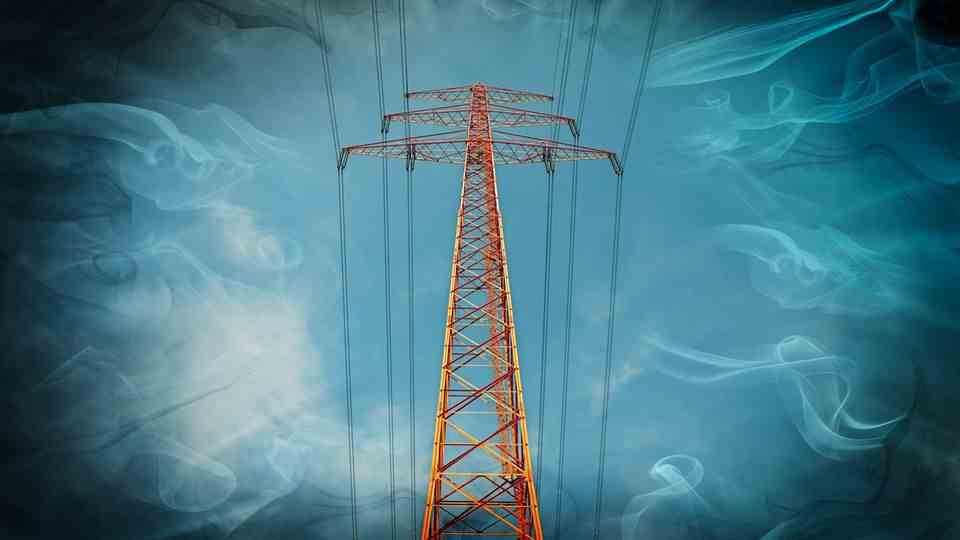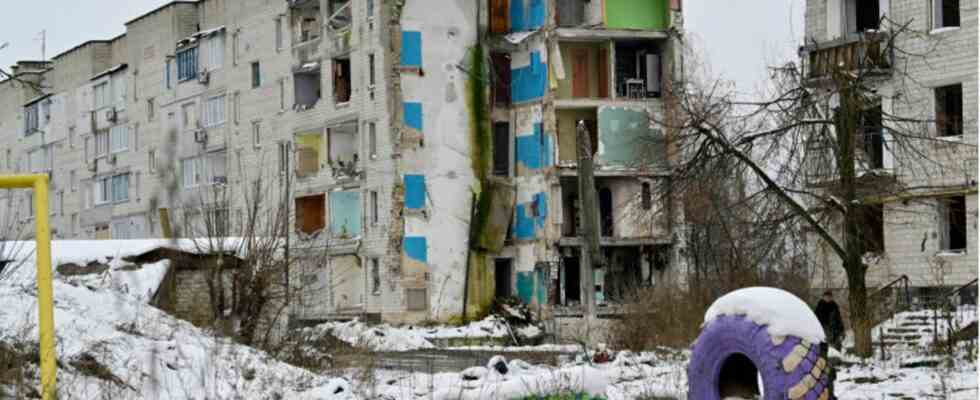The Kremlin is doing everything it can to wear down Ukraine in a dark winter – Father Frost as brother in arms. At the same time, Moscow is hoping that the alliance with the West will not survive the cold months.
The weather forecast for Friday: 3 degrees in Kherson, -2 degrees in Kharkiv, -1 degrees in Kyiv. And it’s getting colder. “This winter will be about survival,” said Hans Kluge, regional director of the World Health Organization (WHO), last week. He is certain that the coming months will be “life-threatening” for millions of people in Ukraine.
In fact, the first snow fell in the Ukrainian capital a long time ago – but the dice in the war have not yet been cast. And so Moscow is counting on the fact that the relationship between Kyiv and its (still) willing to pay allies will cool down in line with the temperatures. So it is – again – up to the West to ensure that the Ukrainians can continue their struggle.
Fight on credit: The West keeps bankrupt Ukraine alive
In mid-November, Russia began the most violent bombardment to date on civilian infrastructure in the neighboring country. Meanwhile, around 40 percent of Ukraine’s energy infrastructure had reportedly been damaged or completely destroyed by Russian airstrikes, leaving millions of people in the cold darkness. “The extent of the destruction is colossal,” said Volodymyr Kudryzkyj, head of the Ukrainian electricity network operator Ukrenerho last Tuesday. The invaders want to “freeze us, destroy our electricity, our heating and our generators,” said Kiev Mayor Vitali Klitschko in an interview with the US magazine “Politico”.
Ukraine’s energy supply is simply vulnerable. The energy company DTEK had to increase its production by 16 percent in mid-September to prevent nationwide blackouts. Energy imports are not an option: Coal prices are around three times higher abroad, and the situation is not much different for electricity, according to the US think tank “Atlantic Council”. The fact that the lights are still on in large cities like Kyiv is also due to the fact that demand has fallen by more than a third since the beginning of the war.
What must also be clear: that Ukraine has not long since collapsed financially, that pensions and civil servants’ salaries continue to be paid after nine months of war, that the infrastructure (hospitals, banks, etc.) is stable – all of this is solely due to the current low levels pockets of their allies. The huge sums of money that the West is pumping into Ukraine are just as important as the weapons systems supplied, writes the US magazine “Foreign Affairs” aptly.
Attacks on the power grid
Russia bombs Ukraine into darkness
The International Monetary Fund (IMF) recently said Ukraine needs $3 billion a day to get through the coming year – $5 billion if shelling from Russian invaders escalates. According to “Foreign Affairs”, economists assume that the Ukrainian economy will shrink by at least 35 percent by the end of the year. The UN even estimates that nine out of ten Ukrainians could be impoverished by Christmas.
Ukraine is dependent on the hospitality of the West – and it knows its limits
Added to this is the largest wave of European refugees since the Second World War: since the Russian invasion in February, around 7.7 million of the 44 million Ukrainians have fled abroad. Kiev’s allies have paid dearly for their open arms. The Organization for Economic Co-operation and Development (OECD) estimates that Poland alone will spend more than 8.3 billion euros on housing and caring for Ukrainian refugees. One in September from Survey conducted by the UN Refugee Agency among Ukrainian refugees revealed that 68 percent of respondents were not yet employed. Almost half of them depended on aid programs as their main source of income.
But the homeland of the expellees is dependent on hospitality in the West. As early as October, Iryna Vereshchuk, the country’s deputy prime minister, called on all Ukrainians who had fled abroad to return home in the spring at the earliest. “We must survive the winter”, she quotes the British BBC.
But there are already signs that the willingness to help is waning. Bulgaria suspended its aid program for accommodating refugees because of “lack of gratitude”, in Poland refugees will soon have to help finance the communal accommodation. Even for the generous ally Great Britain, in which three prime ministers have been sworn in since the beginning of the war, financial solidarity could at least have its limits in view of its own completely ailing national budget.

The same applies to the USA, where the Republicans could put a stop to the blank check policy of the Biden administration after retaking the House of Representatives at the midterms. In Germany, too, the much-vaunted war fatigue is evidently making itself felt. According to a survey by the MDR more than half of the 24,000 respondents indicated their willingness to help Ukraine as “low”. According to the RTL trend barometer, every second German fears supply bottlenecks in winter. The inescapable thought: We must take care of ourselves first.
Time for negotiations? Kyiv feels under pressure
People in Kyiv also know that European charity knows its limits. According to the US think tank “Center for Strategic and International Studies” (CSIS), President Volodymyr Zelenskyj is feeling increasing pressure from Western diplomats to enter into negotiations with the Kremlin – even if that means that Kyiv would have to make concessions to Moscow . Recently, as CNN reports, said the supreme military commander of the United States, General Mark Milley, that Kyiv should be gradually urged to start talks. The White House quickly backtracked. According to CSIS, however, US officials are increasingly concerned that Putin could soon flee to escalation in view of the numerous defeats. In the United States, they are now talking about a policy of “calculated restraint.” The rocket impact in Poland made it clear how little it would take to literally explode the powder keg.
US National Security Advisor Jake Sullivan paid a visit to Zelenskyy in early November. Officially, he was supposed to “underline the unwavering support of the United States for Ukraine and her people,” according to the White House. In fact, he should have put Selenskyj to the test in terms of willingness to talk. “He tested the waters a bit,” said a person familiar with the meetings according to the US broadcaster “NBC News”.
Officially, the Western allies continue to emphasize Kiev’s decision-making authority in matters of negotiations. “We would like to see talks come about,” the news network “Conversation” quoted an anonymous Western diplomat “with direct knowledge” of the military operations as early as the end of October. “Everything slows down in winter” – the Christmas season as an opportunity for insight?
All eyes are hopefully directed towards Ankara: If the worst comes to the worst, Turkish President Recep Tayyip Erdogan, who has mastered the art of dancing at several weddings at the same time, is likely to play the decisive role of mediator – which Erdogan in turn uses as a bargaining chip to put pressure on its NATO partners.
Because Kyiv becausethe successful offensives in recent months and Moscow despite this however, continue to be unforgiving and apparently unwilling to deviate even a millimeter from their war aims, the coming months (According to the New York Times, experts” from a winter break of up to half a year) but rather serve to prepare for spring offensives.
The CSIS experts are certain that Putin is counting on Allianz not surviving the cold season without a severe relationship crisis. Accommodating Moscow in the face of the targeted bombing of civilian structures would set a dangerous precedent, however. One could get the irrevocable impression that Putin is being rewarded for his aggression out of fear of the cold winter.
Sources: “Atlantic Council“; “Center for Strategic and International Studies“; “Grid“; “conversation“; “Foreign affairs“; with material from the dpa

